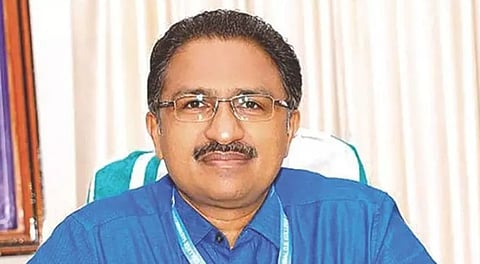

Kochi | The Kerala High Court on Wednesday upheld the suspension of Kerala University Registrar Prof Dr K S Anilkumar, while directing the Vice Chancellor to convene the Syndicate to take a final call on whether the suspension should continue.
Justice T R Ravi dismissed Anilkumar's plea to quash the suspension, saying the challenge "fails", but made it clear that the Syndicate's decision would be binding on the Vice Chancellor.
Anilkumar, appointed as Registrar in 2021, was suspended on July 2 after he cancelled permission for a seminar at the University's Senate Hall, citing the presence of religious symbols and the risk of student clashes.
The event, attended by Governor Rajendra Vishwanath Arlekar, sparked a political row after the Registrar's cancellation order was reportedly issued while the national anthem was being sung.
The Vice Chancellor argued that the Registrar had acted irresponsibly, causing a security lapse and bringing disrepute to the University.
Anilkumar countered that he acted in good faith to avert violence, and claimed the suspension was illegal and beyond the Vice Chancellor's powers.
The case also revolved around two disputed Syndicate meetings held on July 6.
While a section of members claimed they revoked the suspension, the Vice Chancellor maintained the meeting had already been dissolved and any subsequent decision was invalid.
Justice Ravi agreed that the second meeting could not be treated as valid, noting that allowing such parallel gatherings "can lead to mischievous situations."
But the court stressed that the Syndicate, not just the Vice Chancellor, has the authority to decide whether the Registrar's suspension should continue.
"The decision taken by the Syndicate will necessarily be binding on the Vice Chancellor and the VC will have to give effect to it, subject to the powers of the Chancellor," the court ruled.
The court also observed that the Vice Chancellor was wrong to block the Syndicate from discussing the Registrar's suspension, since the body could have reviewed the decision and avoided a legal fight.
At the same time, it ruled that Syndicate members had no right to call a "second meeting" after the first was dissolved, warning this could create confusion and misuse of quorum rules.
The court stressed that universities must act on academic principles, not political interests. Both the VC and the Syndicate were faulted for mishandling the issue, it observed.
